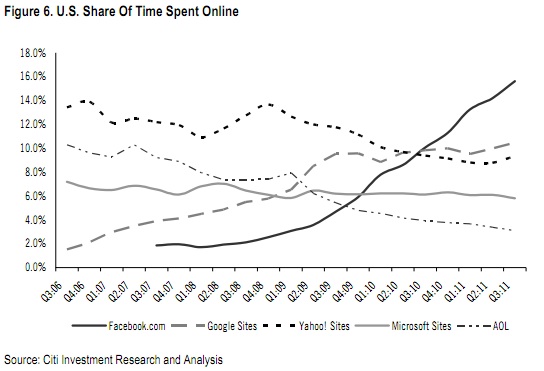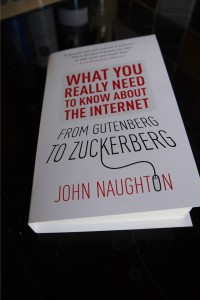Recorded at the Royal Institute for International Affairs on May 9, 2016. Meant to put it up ages ago and, well, forgot…
Category Archives: G2Z
Gutenberg to Zuckerberg: a seminar presentation
I gave a talk at LSE yesterday about the thinking that lay behind my new book. It’s long, but it does explain the background and the book.
Digital abundance
One of the points I often make in lectures is that economics has severe limitations as an analytical framework for looking at our new media ecosystem because it’s the study of the allocation of scarce resources, whereas what characterises the digital ecosystem is abundance. That sounds glib when I say it, but this installation by Erik Kessels — on show as part of an exhibition at Foam in Amsterdam — makes the point vividly. It features print-outs of all the images uploaded to Flickr in a single 24-hour period. There are several rooms like this…
.
Gutenberg to Zuckerberg: an interview
As many readers of this blog know, I have a new book coming out in January in which I try to distil what I think people should know about the Internet. My Open University colleague Monica Shelley has done an interview with me about it which has just gone on the departmental website. Here it is for anyone outside the firewall. The book has nine big ideas in it (seven plus or minus two in homage to George Miller). Monica wisely decided to focus on the most basic five ideas; otherwise she’d have been there all day. Thanks to her and to Joe Mills, who shot and edited the clip.
Why an increasing number of people think that Facebook is the Internet
Chapter Two of my forthcoming book is entitled “The Web is not the Net”. It’s there because I was alarmed by the number of people who thought that the Web and the Internet were synonomous. When I mentioned this to Tim Berners-Lee at a Royal Society symposium he said that the situation was even worse than that: millions of people now think that Facebook is the Internet. This chart (via Peter Kafka) from a report by Citigroup Analyst Mark Mahaney illustrates the extent of the problem.
Reading, the Net and the plasticity of the human brain
Good piece by Maryanne Wolf, whose book — Proust and the Squid: The Story and Science of the Reading Brain — was really helpful when I was writing Chapter 1 of G2Z.
To begin with, the human brain was never meant to read. Not text, not papyrus, not computer screens, not tablets. There are no genes or areas in the brain devoted uniquely to reading. Rather, our ability to read represents our brain's protean capacity to learn something outside our repertoire by creating new circuits that connect existing circuits in a different way. Indeed, every time we learn a new skill – whether knitting or playing the cello or using Facebook – that is what we are doing.
New capacities, however, change us, as the evolutionarily new reading circuit illustrates. After we become literate, we literally "think differently" about language: images of brain activation between literate and nonliterate humans bear this out. The brain's plasticity allows an intrinsic variety of possible circuits – there is no set genetic programme. For example, in the case of reading, this means there will be different reading brains depending on various environmental factors: the Chinese reading brain, for example, uses far more visual areas because there are more characters to learn.



